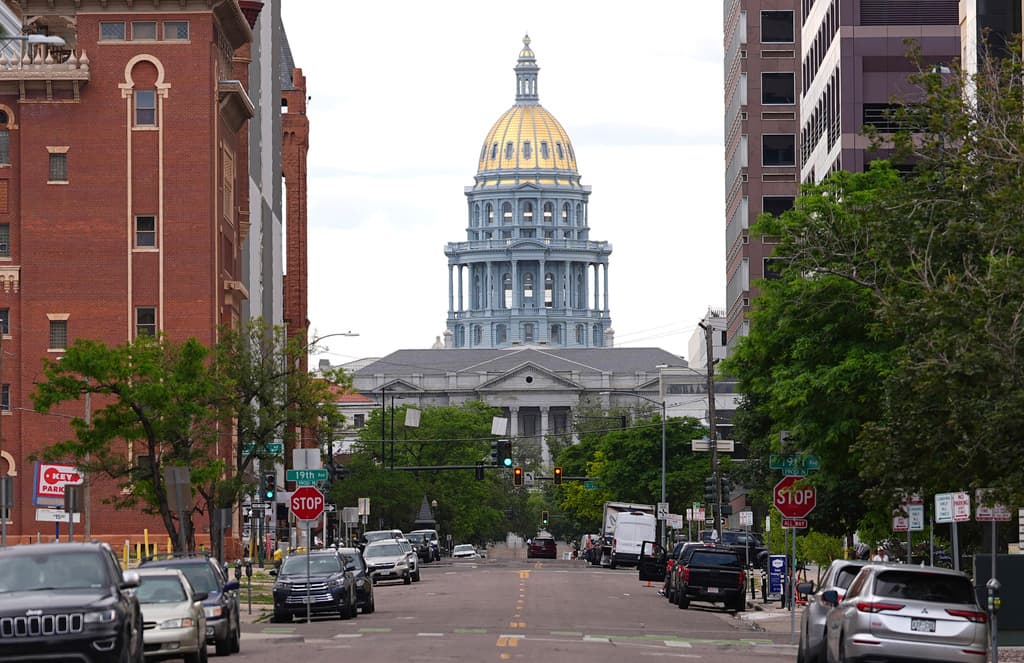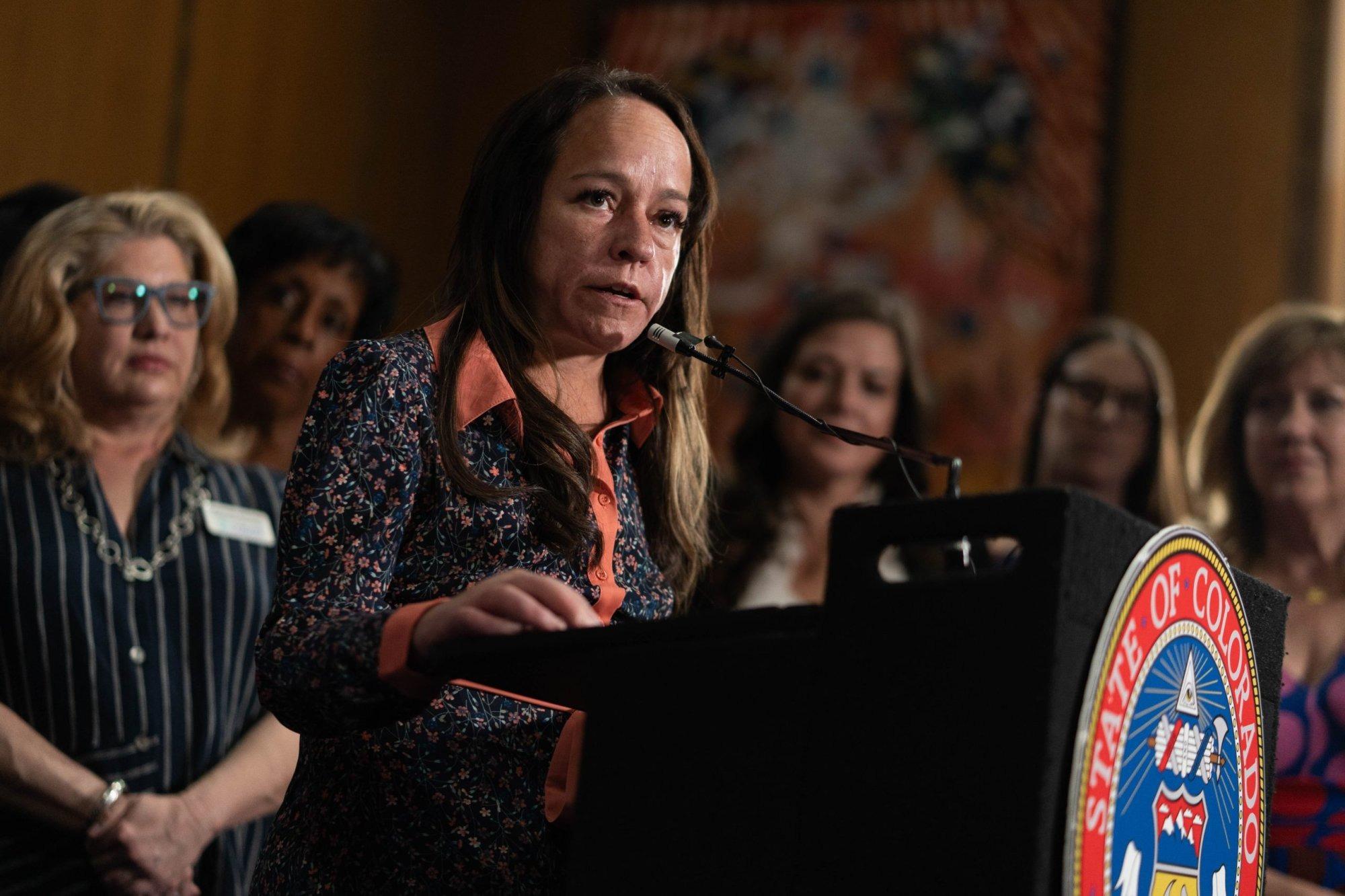
Updated 2:33 p.m. on Wednesday, July 30, 2025.
This story was produced as part of the Colorado Capitol News Alliance. It first appeared at coloradosun.com.
Colorado lawmakers must cut about $1 billion from the state budget for the current fiscal year, which began July 1, to address tax revenue reductions caused by the federal spending bill passed by Republicans in Congress earlier this month.
Nonpartisan Legislative Council Staff and the Governor's Office of State Planning and Budgeting told top state legislators Wednesday that the so-called One Big Beautiful Bill Act is estimated to reduce Colorado’s tax revenue collections by $1.2 billion in the current fiscal year. That’s bigger than the revenue hole Colorado faced during the Great Recession, according to the governor’s office.
After accounting for roughly $250 million in revenue expected to be collected by the state this year in excess of the Taxpayer’s Bill of Rights cap on government growth and spending, that still leaves a $1 billion gap in Colorado’s current, $43.9 billion spending plans.
The presentations to the Executive Committee of the Legislative Council on Wednesday were a precursor to a special lawmaking term expected to be called by Gov. Jared Polis for the coming weeks. The panel is made up of top Democrats and Republicans in the legislature.
Colorado’s tax code is written to mostly mirror federal law, which makes it one of a handful of states particularly susceptible to the tax changes in the Republican bill.
The longer lawmakers wait to address the budget crater the harder it will be to close it as the General Assembly looks to eliminate preexisting state tax loopholes to make up the bulk of the difference and head off cuts. Every new dollar of revenue the legislature finds means one less dollar out of the $1 billion they have to cut.
The budget gap caused by the big, beautiful bill is different from the shortfall state lawmakers faced this year when writing the current budget. The previous $1.2 billion shortfall was caused by the rising costs of health care and education, requiring extensive cuts to planned spending on state services.
But those cuts merely constrained a state budget that was still growing. The big, beautiful bill is causing a reduction in the amount of money lawmakers have available to spend.
“This is different than ‘we’re just slowing the growth,’” said Mark Ferrandino, who leads the Governor’s Office of State Planning and Budgeting. “This is ‘we don’t have the money to pay our bills.’ So we need to do something. Every day that goes by, this problem gets more difficult. Every day we wait means we have deeper cuts we will have to make.”
The Republican tax and spending bill, signed by President Donald Trump on July 4, made a wave of changes to how individual and corporate income taxes are levied. In Colorado, because the state mirrors the federal tax code, that’s driving down how much money is collected.
“This is impacting us to a greater extent than many other states,” said Ferrandino. “When the federal government passes a change in tax policy, that impacts us automatically as a state, because we follow what the federal government's taxes are. This has positive benefits, in the sense of it's easier to file your taxes. But it also has a downside, because it also could reduce revenue.”
Colorado's constitution requires the state budget to be balanced, meaning the state can't simply go into debt, like Congress, to cover the lost revenue.
"July 1 we were balanced," state Sen. Jeff Bridges, chair of the legislature's Joint Budget Committee. "July 4 we were down $1 billion."
The governor’s office predicts the bill will reduce the state’s corporate income tax revenue by up to $950 million. Its exemption on income taxes for the first $25,000 on overtime earned by families (or $12,500 for individual tax filers) is expected to result in a hit to state coffers of up to $290 million as part of a roughly $460 million reduction in state individual income tax collections.
State income tax revenue makes up the biggest chunk of Colorado's budget.
Legislative Council Staff believes there will be a slightly bigger revenue impact from individual income tax reductions and a slighter smaller impact from corporate income tax revenue reductions, but they agree on the $1.2 billion overall hit.
Elizabeth Ramey, an economist with LCS, cautioned that the numbers could change as the effects of the big, beautiful bill are better understood.
“There might be unanticipated interaction at the state level that we have not accounted for,” she said. “So, just to say: What can go wrong? A lot of things.”
LCS also had a slightly rosier outlook in terms of how big the budget deficit is because of the GOP federal tax and spending bill. The agency believes the gap in the current budget year is more like $700 million because they believe an existing state tax credit may turn off earlier than what the governor’s office projects.
The $1.2 billion revenue hit in the current fiscal year is separate from how Medicaid and other social safety net changes made through the GOP tax and expenditure bill will affect state finances. Most of those new eligibility requirements and spending reductions won’t take effect until the end of 2026.
The legislature can wait until it returns for its regular lawmaking term in January to address how the Medicaid changes will affect state finances. That’s expected to be a longer-lasting problem.
Closing the $1 billion gap in the current fiscal year budget will require some financial gymnastics by the legislature. Democrats plan to try to close some tax breaks for businesses to make up the bulk of the revenue loss, but cuts to existing programs are also likely.
Lawmakers could also choose to tap into the state’s budget reserve fund, but that poses risks.
Colorado is required by law to maintain reserves that equal 15% of the state’s General Fund spending. But using the reserve to cover the roughly $1 billion hole caused by the big, beautiful bill would draw the reserve down to just 9%, the governor’s office says.
Reserves at that level would not be enough to cover budget shortfalls under even a moderate recession, according to the Governor’s Office of State Planning and Budgeting.
“If we do nothing and we have a moderate recession in this fiscal year, we have zero reserve,” Ferrandino said of using the reserve to cover this year's budget gap.
The reductions would also impact next year’s reserves, essentially kicking the financial can down the road.
Legislative Republicans accused Democrats of using Wednesday’s meeting just to attack the GOP.
“This wasn’t a serious meeting,” state Sen. Barbara Kirkmeyer, a Brighton Republican and member of the JBC, said on social media. “It was just theatrics.”
House Minority Leader Rose Pugliese, R-Colorado Springs, questioned whether the legislature could address the budget hole during the supplemental process, which happens early next year to correct changes to the active budget. That would avoid a special session.
Ferrandino said that would be a bad idea because it would give the legislature less time to close tax loopholes to raise revenue to close the gap.
Additionally, the supplemental process is generally used to add spending, not subtract it.
The governor’s office said it is directing state agencies to propose budget cuts to help the legislature make up the shortfall.

Colorado Capitol Alliance
This story was produced by the Capitol News Alliance, a collaboration between KUNC News, Colorado Public Radio, Rocky Mountain PBS, and The Colorado Sun, and shared with Rocky Mountain Community Radio and other news organizations across the state. Funding for the Alliance is provided in part by the Corporation for Public Broadcasting.








